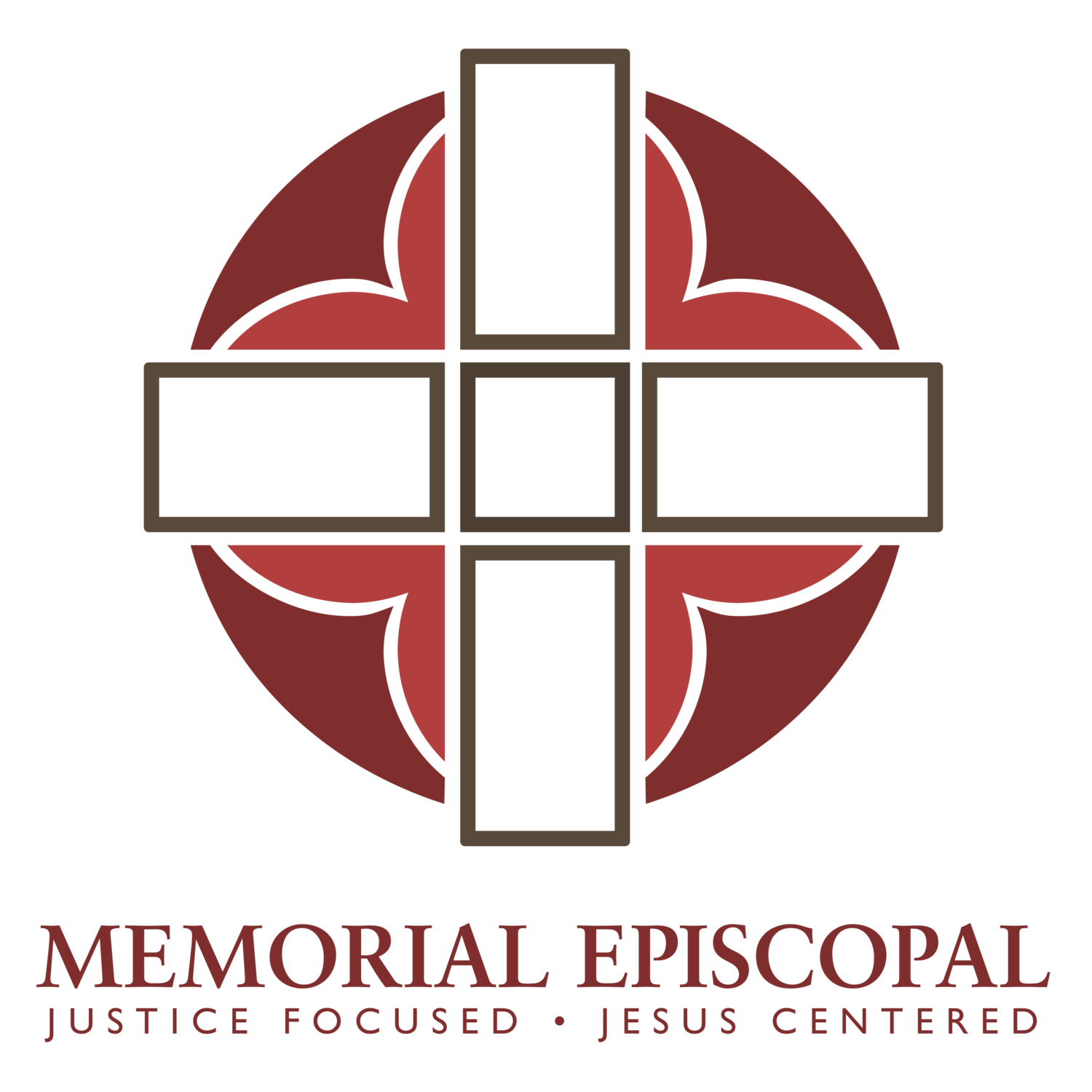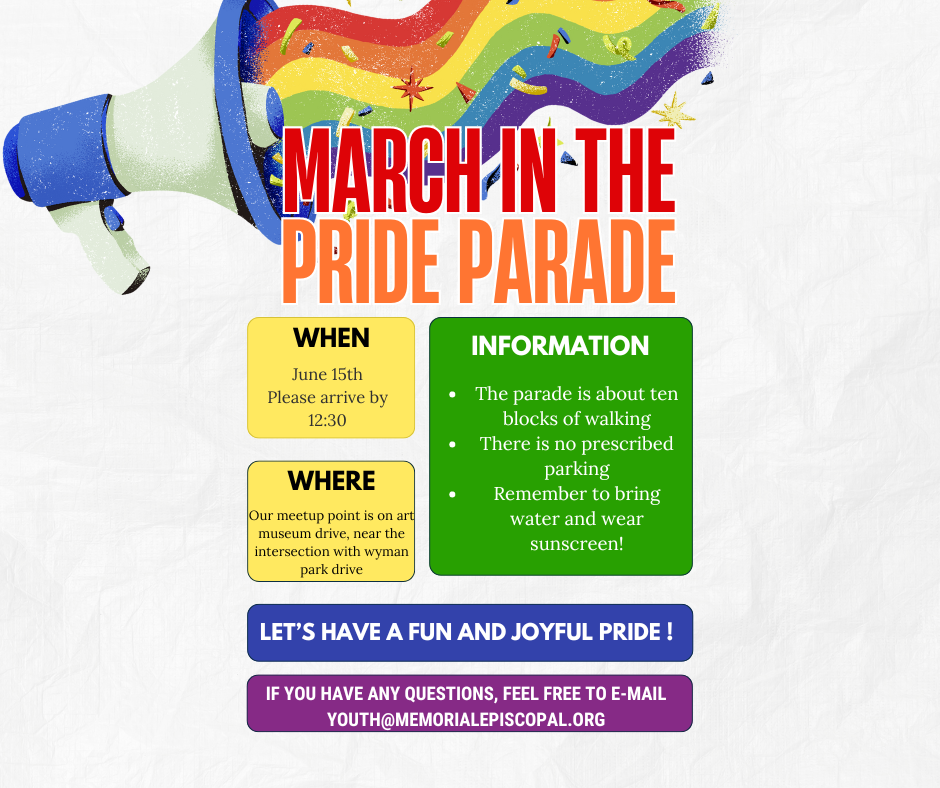The View from Bolton Street
Pride and Prejudice: The Story of the Church
This past week I have been working with some members of the congregation to catalogue our parish’s history of LGBT Inclusion. It is a pretty amazing journey! And has been a joy to hear their stories and to delve into the parish (and local library) archives for additional information.
Some highlights: as far back as the 1970’s Memorial was a safe place for Gay men and women to worship and be involved in ministry without having to answer any questions. Memorial began the first AIDS healing service in the Diocese and was part of a consortium of believers that established the first AIDS Hospice here in the city. In the 1990s, Memorial spurred conversation by blessing a same-sex couple’s relationship publicly (drawing the ire of the Diocese and the National Church in the process). In the 2000’s we were involved in pressuring both the Church (2003) and the State (2012) in the blessing of same-sex marriages canonically and legally.
Memorial can and should take great PRIDE in our history of LGBT Inclusion. But with these stories also came quite a few stories of pain and prejudice.
It is hard for younger Episcopalians to imagine a church where you were scared to acknowledge your own identity, or even be willing to have the internal conversation. As one member put it to me, what was amazing was not just that gay people were accepted but that they were fully included in the life of the Church: “I was ‘included’ whereas in other churches at that time, acceptance meant tolerance, or not asking us to leave.”
Prejudice is of course still alive and well in the Church. In some parts of the country even Episcopal churches may not be safe spaces for LGBT folk. In our own city Trans rights are still hard to protect, and on a national and international level these rights are under constant attack. It is wonderful that we will gather this Saturday for the Pride parade and that every Sunday Memorial will be an open and affirming congregation for all people no matter who they are or who they love.
But we must also ask how can we continue to support, advocate, and lift up our siblings in Christ who do not yet enjoy the same freedoms. Every Sunday we gather to celebrate the coming Kingdom of God and then we spend the days in between seeking to build a world that is a bit more like that Kingdom.
So this week let us celebrate the pride, acknowledge the prejudice, and continue to build the Kingdom.

